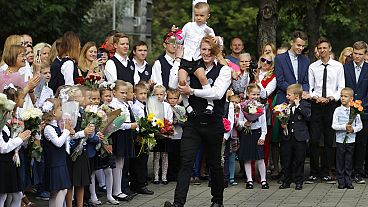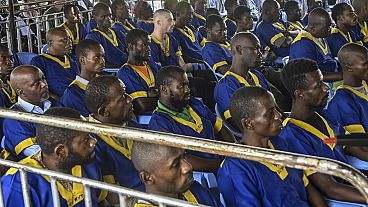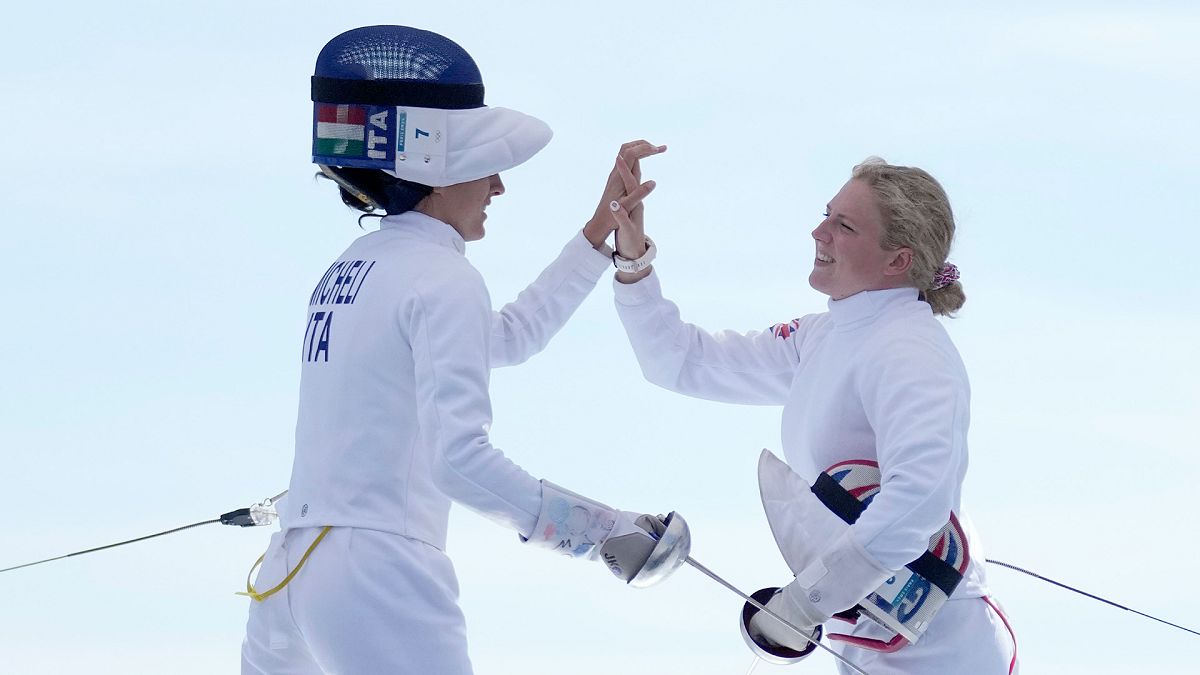Euronews conducted a statistical analysis to explore the potential link between the number of medals won at the Paris 2024 Olympics and the government spending and employment rates in sports across Europe.
Which European country performed best at the Paris Olympics? The answer might not be so straightforward.
First of all, it depends on how you count the medals — whether by total count, golds, or using a weighted point system.
Also, each country's socio-economic and demographic characteristics vary significantly, making comparisons challenging.
To provide a more nuanced analysis, Euronews examined the employment rate in sports and government expenditure to evaluate European countries' Olympic performance in the Paris Summer Games.
Who's the best? It depends on who's counting
There is no formal medal-counting system to compare countries in the Olympics.
The International Olympic Committee (IOC) does not explicitly endorse any particular method. However, the current ranking on the official website is based on the number of gold medals.
Media outlets, researchers, and experts suggest various weighted point systems to count the medals and rank the countries.
A weighted point system takes into account the relative value of medals, with gold being worth more than silver, and silver more than bronze. For example, in a "3:2:1" system, three points are awarded for a gold medal, two points for a silver, and one point for a bronze.
However, the value assigned to a gold medal can vary. For instance, according to Yaroslav Sergeyev’s article, in 2008, The New York Times used a “4:2:1” system. In 1908, the British press applied a “5:3:1” weighting.
More recently, Topend Sports suggested a “6:2:1” model. Ultimately, the choice of weighting system is subjective and can influence the ranking outcome.
Looking at the number of medals, France led the rankings across all counting systems in broader Europe, which includes the EU, EFTA, the UK, and EU candidate countries.
The significant difference in the rankings across these systems lies between the Netherlands and Great Britain (Team GB).
When considering only the number of gold medals, the Netherlands (15) surpasses Team GB (14). However, when the total number of medals is taken into account, Team GB clearly ranks second.
To illustrate: the Netherlands won a total of 34 medals, while GB secured 65. In the “4:2:1” system, the Netherlands scored 86 points, whereas GB accumulated 129 points.
The rankings of Georgia and Belgium also shift depending on the counting system used. You can make your own evaluations for other countries based on your chosen system.
Even if there’s a general consensus on how to count medals, this alone doesn’t accurately assess a country’s Olympic performance, given the significant differences in population size and resources among nations.
That’s why several studies consider other factors, such as medals per capita and gross domestic product (GDP) per capita, for a fair evaluation. However, these approaches also have their own limitations.
Does hiring and spending more help?
We are exploring the potential link between the number of medals, sports employment rates and government spending on sports in Europe.
Let's first take a look how these vary across Europe, mainly among EU members, EFTA and EU candidate countries where data is available.
In 2022, the Nordic countries led Europe in the employment of sports professionals as a share of total employment. Iceland was an outlier at 2.6%, while four other Nordic countries also had rates above 1.1%.
Among Europe's largest economies, Spain had the highest rate at 1.2%, followed by France at 1%, while Germany's rate was notably lower at just 0.6%.
When looking at the number of employed people in sports per 100,000 inhabitants, a similar trend emerges, with the Nordic countries leading in rates. Spain and France also recorded higher rates than Germany and Italy.
In 2022, the total government expenditure on recreational and sporting services varied significantly across the EU and three EFTA countries, measured as a percentage of GDP, a percentage of total expenditure, and in millions of euros.
Like employment in sports, France and Spain had higher shares of GDP and total expenditures on recreational and sporting services compared to Germany and Italy.
What are the findings?
Euronews dived into the matter by conducting several basic Pearson correlation tests to look into the possible links between performance at the Paris 2024 Olympics and these variables.
In fact, there is a very strong positive correlation between the total government expenditure on recreational and sporting services (measured in millions of euros) and the number of medals each country won at the Paris 2024 Olympics.
This strong correlation holds whether we use the total number of medals or a weighted system (4:2:1) to assess performance.
This indicates that countries with higher government expenditures collected more medals at the Summer Games.
However, there was no significant correlation between government expenditure on recreational and sporting services when measured as a percentage of GDP or as a percentage of total expenditure.
We also discovered a very strong positive correlation between the total number of employed people in sports and the number of medals each country won at the Paris 2024 Olympics, whether considering the total medal count or using a weighted system (4:2:1).
However, we did not find any significant association when looking at employment in sports as a share of total employment or the number of employed people per 100,000 inhabitants.
These results are based on preliminary correlation tests involving approximately 30 European countries, highlighting the need for further research on a global scale.
Investing in sports and hiring more professionals can often improve competitive results.
Yet, this isn’t always the case. Germany spent less than Spain but won more than twice as many medals.












